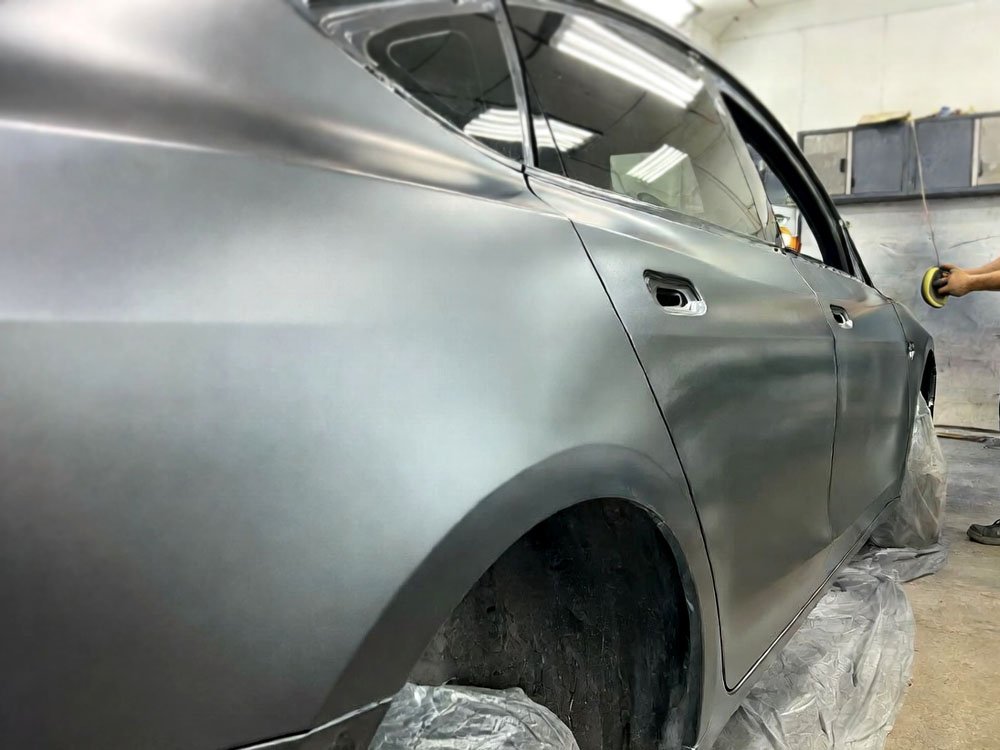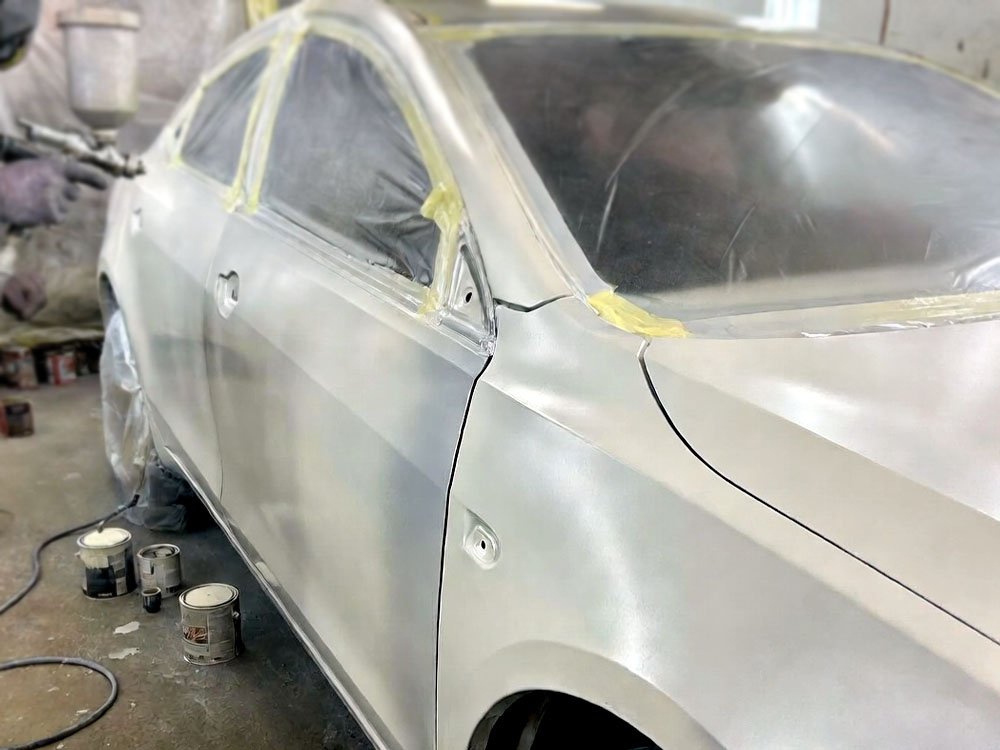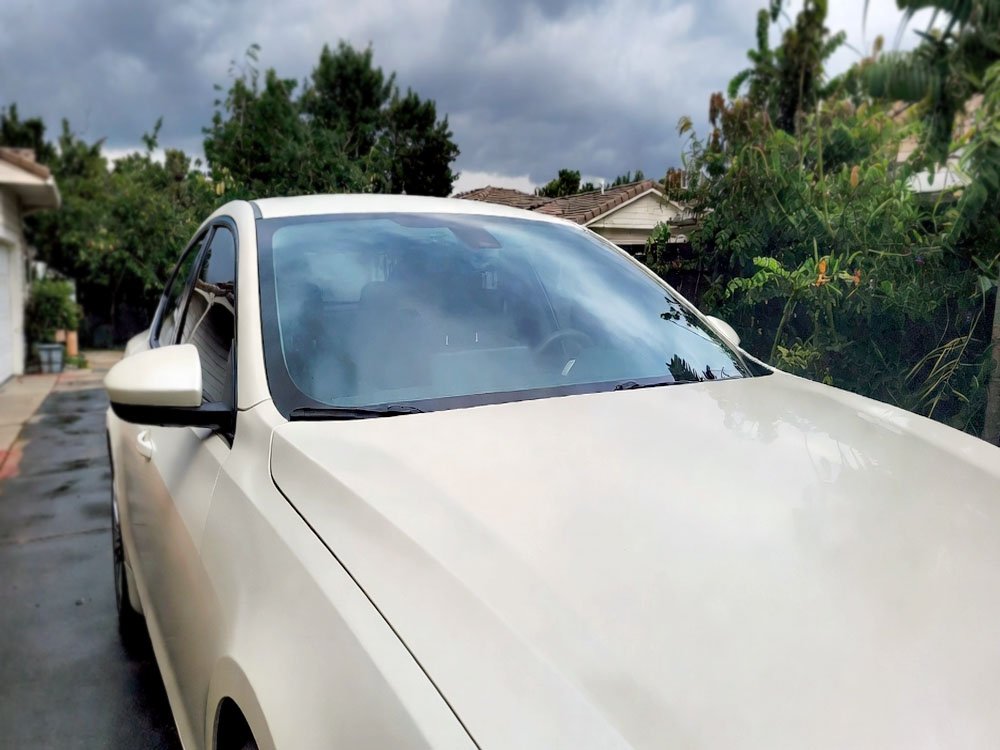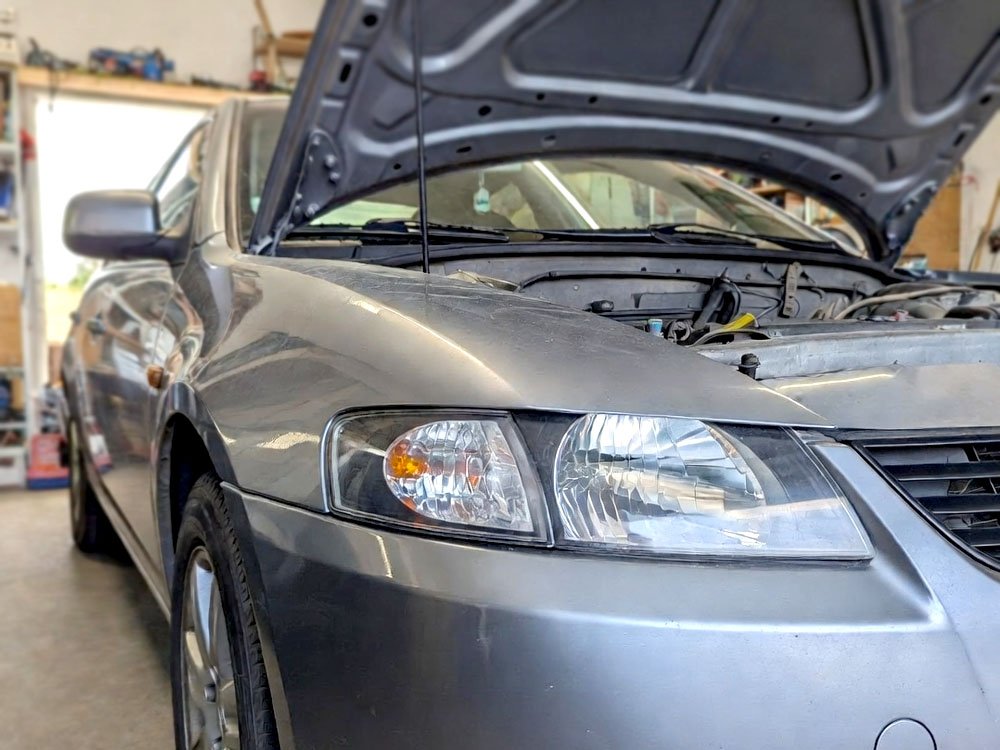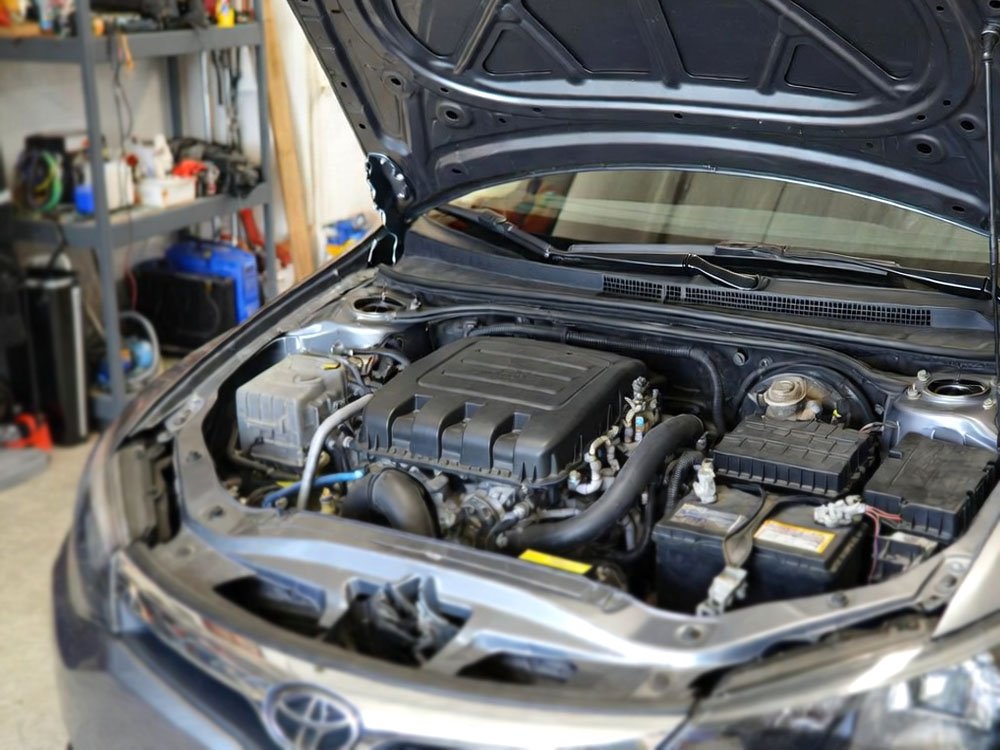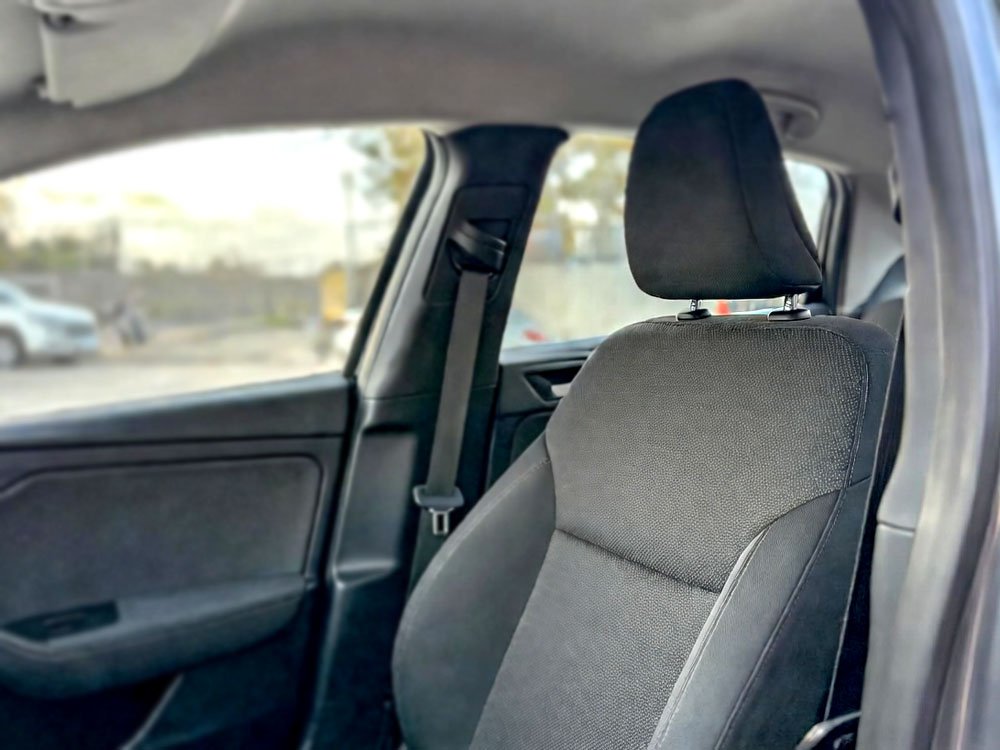To get rid of skunk smell from your car, start by airing out the car by opening all the windows and doors. Then, clean the affected areas with a mixture of hydrogen peroxide, baking soda, and dish soap.

Credit: www.amazon.com
Understanding Skunk Odor
Skunk odor is not only unpleasant but also difficult to get rid of, especially when it finds its way into your car. Whether you accidentally hit a skunk or parked near a skunk-infested area, dealing with the pungent smell can be overwhelming. However, understanding the science behind skunk odor and the causes of its lingering presence can help you effectively eliminate it from your car.
Causes Of Skunk Odor
Skunk odor is famously known for its potent and long-lasting nature. This is primarily due to the unique composition of chemicals found in a skunk’s defensive spray. When a skunk feels threatened, it releases a concoction composed mainly of sulfurous compounds, such as thiols and thioacetates.
These sulfurous compounds are responsible for the strong, repulsive smell that permeates your car when you encounter a skunk. The compounds are volatile, easily vaporizing into the air, making it difficult to escape their presence. Additionally, they are highly stable, meaning they can persist in the environment for an extended period.
The Science Behind Skunk Odor
The skunk spray contains various organic molecules that contribute to its distinctive odor. The main component responsible for this foul smell is a chemical compound called butyl mercaptan, which has a putrid, garlic-like scent.
But what makes skunk odor so difficult to eliminate? It all comes down to the chemistry. The sulfurous compounds found in skunk spray readily bind to the proteins in your car’s upholstery, carpets, and air conditioning system. This reaction creates a lasting bond that intensifies the smell and makes it challenging to remove.
Furthermore, skunk odor can penetrate porous materials, including fabric and leather, making it linger for an extended period. This means that even if you clean the surfaces visibly affected by the skunk spray, the odor can still persist.
It’s important to note that skunk odor doesn’t pose any health risks, but it can cause discomfort and embarrassment. Therefore, taking immediate action to remove the smell is crucial to restoring the pleasant environment of your car.
Now that you understand the causes and science behind skunk odor, you can delve into effective methods to eliminate it from your car. Whether you opt for natural remedies or specialized products, tackling the skunk smell promptly will help you regain the fresh-smelling interior of your vehicle.
Immediate Steps To Take
Getting into your car only to be greeted by the pungent smell of a skunk can be a nightmare. The strong odor can quickly permeate through your vehicle, making it an unpleasant experience for both you and your passengers. However, if you act swiftly, you can minimize the lingering smell and restore freshness to your car. Here are some immediate steps to take when dealing with skunk smell in your car.
Ventilation And Fresh Air
First and foremost, open all the windows and doors of your car to allow for proper ventilation. This will help to dispel the skunk odor and bring in fresh air, minimizing the intensity of the smell. In addition to opening the windows, turn on the fans or set your car’s ventilation system to maximize airflow. Creating cross ventilation by opening windows on opposite sides of the car will be particularly effective in reducing the skunk smell.
Removing Visible Skunk Residue
Next, carefully check your car’s exterior for any visible skunk residue. If you spot any, it’s crucial to remove it promptly. Use rubber gloves and a disposable cloth or paper towel to wipe away the residue. Be cautious not to push the residue into gaps or crevices as it can contribute to the lingering smell. Dispose of the used cloth or paper towel immediately to prevent the skunk odor from spreading further.
Avoiding Water-based Cleaning Methods
When it comes to cleaning the interior of your car, it’s important to avoid water-based cleaning methods. Water can interact with the molecules in the skunk spray, causing it to spread, intensify, and become even more difficult to eliminate. Instead, opt for dry cleaning techniques such as using baking soda or activated charcoal. These absorbent materials can help soak up the skunk odor, reducing its presence within your car.
Furthermore, be cautious about using air fresheners or masking sprays. These products might seem tempting to cover up the skunk smell, but they usually only provide temporary relief. It’s better to focus on eliminating the odor rather than masking it.
Home Remedies To Eliminate Skunk Odor
Skunk odor can be notoriously difficult to get rid of, especially when it infiltrates your car. However, fear not! There are several home remedies that can help eliminate the skunk smell and restore freshness to your vehicle. In this post, we’ll explore three effective solutions that you can easily try at home.
Baking Soda And Hydrogen Peroxide Mixture
One of the most popular and effective home remedies to remove skunk odor from your car is a mixture of baking soda and hydrogen peroxide. This powerful combination works by neutralizing the odor-causing compounds left behind by skunk spray.
To create this mixture, simply combine one quart of 3% hydrogen peroxide, a quarter cup of baking soda, and a teaspoon of liquid dish soap. Before applying the mixture to your car’s surfaces, remember to wear gloves and avoid contact with your eyes.
- Thoroughly wash your car with soap and water to remove any loose debris or dirt.
- Pour the baking soda and hydrogen peroxide mixture onto a cloth or sponge and gently scrub the affected areas.
- Allow the mixture to sit for about 10-15 minutes to penetrate and neutralize the skunk odor.
- Rinse off the mixture with water and repeat the process if needed.
Apple Cider Vinegar And Water Solution
Another effective home remedy is using an apple cider vinegar and water solution. Apple cider vinegar is known for its strong odor-absorbing properties, which can help eliminate the skunk smell from your car.
To prepare this solution, mix equal parts of apple cider vinegar and water in a spray bottle. Shake the bottle well to ensure the ingredients are thoroughly combined.
- Thoroughly wash your car with soap and water to remove any loose debris or dirt.
- Spray the apple cider vinegar and water solution onto the affected areas of your car, focusing on the areas with the strongest odor.
- Allow the solution to sit for about 10-15 minutes to effectively neutralize the skunk odor.
- Rinse off the solution with water and repeat the process if necessary.
Activated Charcoal And Coffee Grounds
Activated charcoal and coffee grounds are natural odor absorbers that can be highly effective in removing skunk smells from your car.
To use this method, follow these simple steps:
- Place a bowl of activated charcoal or coffee grounds in your car or sprinkle them directly onto the affected areas.
- Leave the charcoal or coffee grounds in your car for a few days to absorb the skunk odor.
- After the desired time, remove the bowl or vacuum up the charcoal or coffee grounds.
Remember to properly dispose of the activated charcoal or coffee grounds after use.
Next time your car falls victim to a skunk’s unwelcome spray, try these home remedies to eliminate the odor. With a little bit of time and effort, your car will be back to smelling fresh and clean in no time!
:max_bytes(150000):strip_icc()/getting-rid-of-skunk-odor-2656337_V2-199ad4329b744100a7c9bdc21a906199.jpg)
Credit: www.thespruce.com
Professional Solutions And Tips
Learn the professional solutions and tips to effectively eliminate skunk smell from your car. Discover step-by-step methods that are easy to implement and ensure a fresh and odor-free vehicle. Say goodbye to the lingering scent with these expert techniques.
Odor Neutralizing Products
One effective way to eliminate the skunk smell from your car is by using odor neutralizing products. These products are specifically designed to target and neutralize the strong odors left behind by skunk spray. When choosing an odor neutralizing product, look for those that contain natural enzymes or bacteria that can break down the odor-causing molecules.
In addition, you can also opt for air fresheners or deodorizers with pleasant scents to mask any residual skunk odor. Be sure to choose products that are safe for use in vehicles and carefully follow the instructions provided by the manufacturer.
Ozone Treatment
If the skunk smell persists even after trying odor neutralizing products, you may want to consider getting an ozone treatment for your car. Ozone treatment is a professional-grade solution that effectively eliminates tough odors, including skunk smell.
During an ozone treatment, a machine is used to generate ozone gas, which is then dispersed into your car’s interior. The ozone molecules neutralize the odor molecules, eliminating the skunk smell at its source. However, it’s important to note that ozone treatment should only be performed by professionals who are experienced in handling ozone generators.
Seeking Professional Auto Detailing Services
If you’ve tried other solutions but the skunk smell is still lingering, it may be time to seek the help of professionals. Professional auto detailing services specialize in deep cleaning and restoring the interior of vehicles, including odor removal.
When choosing a professional auto detailing service, make sure they offer specific odor removal services. The detailers will thoroughly clean your car’s interior, including the ventilation system, to remove any residue from the skunk spray. They may also use specialized cleaning agents and techniques to effectively eliminate the odor.
Not only will professional auto detailing services ensure that your car smells fresh and clean again, but they can also restore the overall appearance and condition of your vehicle, giving it a well-deserved makeover.
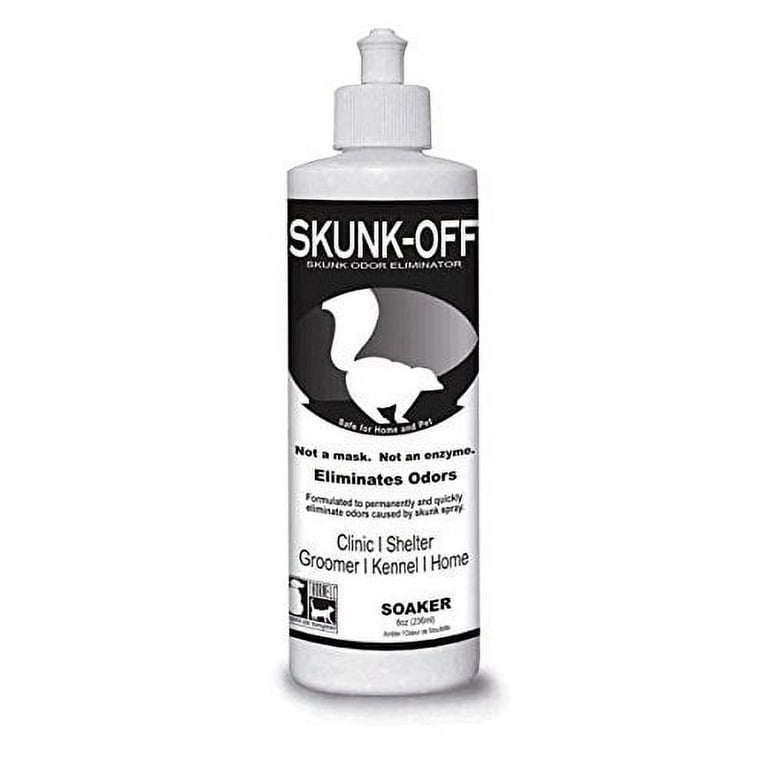
Credit: www.walmart.com
Frequently Asked Questions On How To Get Rid Of Skunk Smell From Car
How Long Does Skunk Smell Last On A Car?
The smell of skunk on a car can last for several days to a few weeks, depending on various factors such as temperature, ventilation, and the intensity of the odor. Avoid parking near skunk habitats and promptly wash affected areas to minimize lingering smells.
How Do I Get The Skunk Smell Off My Car?
To remove skunk smell from your car, mix one quart of 3% hydrogen peroxide, 1/4 cup of baking soda, and two teaspoons of liquid dish soap. Apply and rinse the solution thoroughly on the affected areas. Repeat if necessary.
What Neutralizes Skunk Smell?
To neutralize skunk smell, mix one quart of 3% hydrogen peroxide, 1/4 cup of baking soda, and one teaspoon of dishwashing soap. Apply the mixture to the affected area, leave it on for 5-10 minutes, then rinse thoroughly with water.
Repeat if necessary.
How Long Does It Take Skunk Smell To Go Away?
Skunk smell usually takes about a week to fade away completely.
Q: What Causes Skunk Smell In A Car?
Skunk smell in a car is caused when a skunk’s spray or scent gland secretion gets sprayed or released inside the vehicle.
Q: How Long Does Skunk Smell Last In A Car?
The duration of skunk smell in a car can vary, but it typically lingers for several days to a week if not properly addressed and removed.
Conclusion
Getting rid of skunk smell from your car doesn’t have to be a daunting task. By quickly addressing the issue and following some effective methods, you can eliminate the noxious odor and restore a fresh and pleasant environment inside your vehicle.
Remember to prioritize safety, use natural remedies, and seek professional help if needed. Now you can drive confidently without the lingering scent of a skunk encounter.


